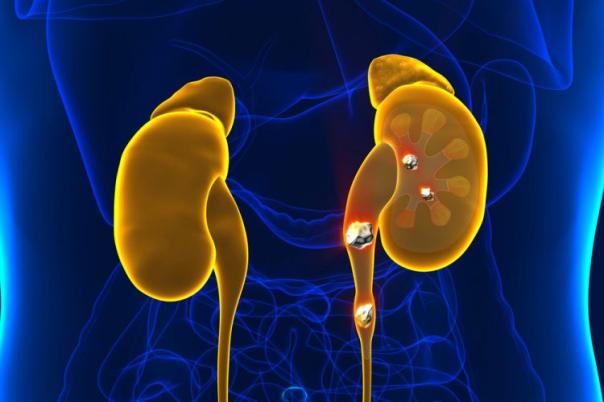First discovered: 5 types of oral antibiotics can increase the risk of kidney stones
May 16, 2018 Source: Sina Pharmaceutical
Window._bd_share_config={ "common":{ "bdSnsKey":{ },"bdText":"","bdMini":"2","bdMiniList":false,"bdPic":"","bdStyle":" 0","bdSize":"16"},"share":{ }};with(document)0[(getElementsByTagName('head')[0]||body).appendChild(createElement('script')) .src='http://bdimg.share.baidu.com/static/api/js/share.js?v=89860593.js?cdnversion='+~(-new Date()/36e5)];If your child needs oral antibiotics for infection, be careful. Recently, pediatric researchers from the Children's Hospital of Philadelphia (CHOP) found that children and adults who received certain oral antibiotics had a significantly higher risk of kidney stones. This is also the first time that these drugs have been linked to kidney stones. Among them, the strongest risk occurs in younger patients and those who have recently been exposed to antibiotics. Related research results have been published in the latest issue of the Journal of the American Society of Nephrology (JASN).

Dr. Gregory E.Tasian, the leader of the study and CHOP pediatric urologist, said that the prevalence of kidney stones has increased by 70% over the past 30 years, especially among adolescents and young women. The cause of the increased prevalence is unknown, but our findings suggest that oral antibiotics play a role in this, especially considering that the rate of antibiotics prescribed in the children's population is higher than that of the adult population.
The research team obtained electronic health records from the UK, covering detailed electronic medical records of more than 13 million adults and children received from general practitioners in the UK Health Improvement Network Database (THIN) from 1994 to 2015. Previous antibiotic exposure in nearly 26,000 patients with kidney stones was compared with nearly 260,000 control subjects.
The results showed that five types of oral antibiotics were associated with the diagnosis of kidney stone disease: oral sulfonamides, cephalosporins, fluoroquinolones, nitrofurantoin, and broad-spectrum penicillins. After adjusting for age, gender, race, urinary tract infections, other drugs, or other conditions, patients receiving sulfa drugs are twice as likely to develop kidney stones as those who are not exposed to antibiotics; for broad-spectrum penicillins, The risk increased by 27%.
The researchers point out that the biggest risk of kidney stones is in children and adolescents. The risk of kidney stones gradually decreases over time, but remains high for several years after antibiotic use.
Currently, scientists have known that antibiotics can alter the composition of the human microbiome (ie, the microbial community in the body) and have linked the destruction of the intestinal and urethral microbiome to the occurrence of kidney stones. However, previous studies did not find a link between antibiotic use and kidney stones.
Dr. Tasian pointed out that previous studies have found that about 30% of antibiotic prescriptions in office visits are inappropriate, and children receive more antibiotics than any other age group. Therefore, this latest finding reinforces the need for clinicians to be cautious when prescribing correct antibiotics. Antibiotic prescription practices represent a variable risk factor, and changes in prescription patterns may reduce the prevalence of kidney stones in current child populations.
Dr. Jeffrey Gerber, another co-author of the study and a CHOP epidemiologist, is leading an antibiotic management program that directs healthcare providers to prescribe the most appropriate antibiotic for each patient's specific infection, with the goal of improving patient outcomes and reducing The overall risk of antibiotic resistance. Dr. Tasian and colleagues are continuing to study microbiome in children and adolescents with kidney stones in order to extend the study to broader, population-based research to better understand how changes in microbiome composition affect The occurrence of kidney stones. (Sina Pharmaceutical Compilation/newborn)
Article reference source:
1, Oral antibiotics may raise risk of kidney stones
2. Gregory E. Tasian et al, Oral Antibiotic Exposure and Kidney Stone Disease, Journal of the American Society of Nephrology (2018).
Immunization Using Cell Culture Based Rabies Vaccines
Rabies is a viral infection transmitted by saliva of infected mammals, most commonly wild, terrestrial carnivores (e.g., skunks, raccoons, foxes, coyotes) or bats.
Immunization Using Cell Culture Based Rabies Vaccines,Based Rabies Vaccines,Cell Culture Rabies Vaccines,Cell Culture Based Rabies Vaccines
Changchun Zhuoyi Biological Co., Ltd , https://www.zhuoyibiological.com